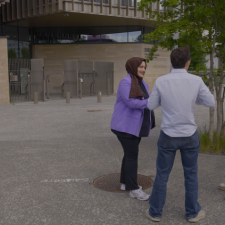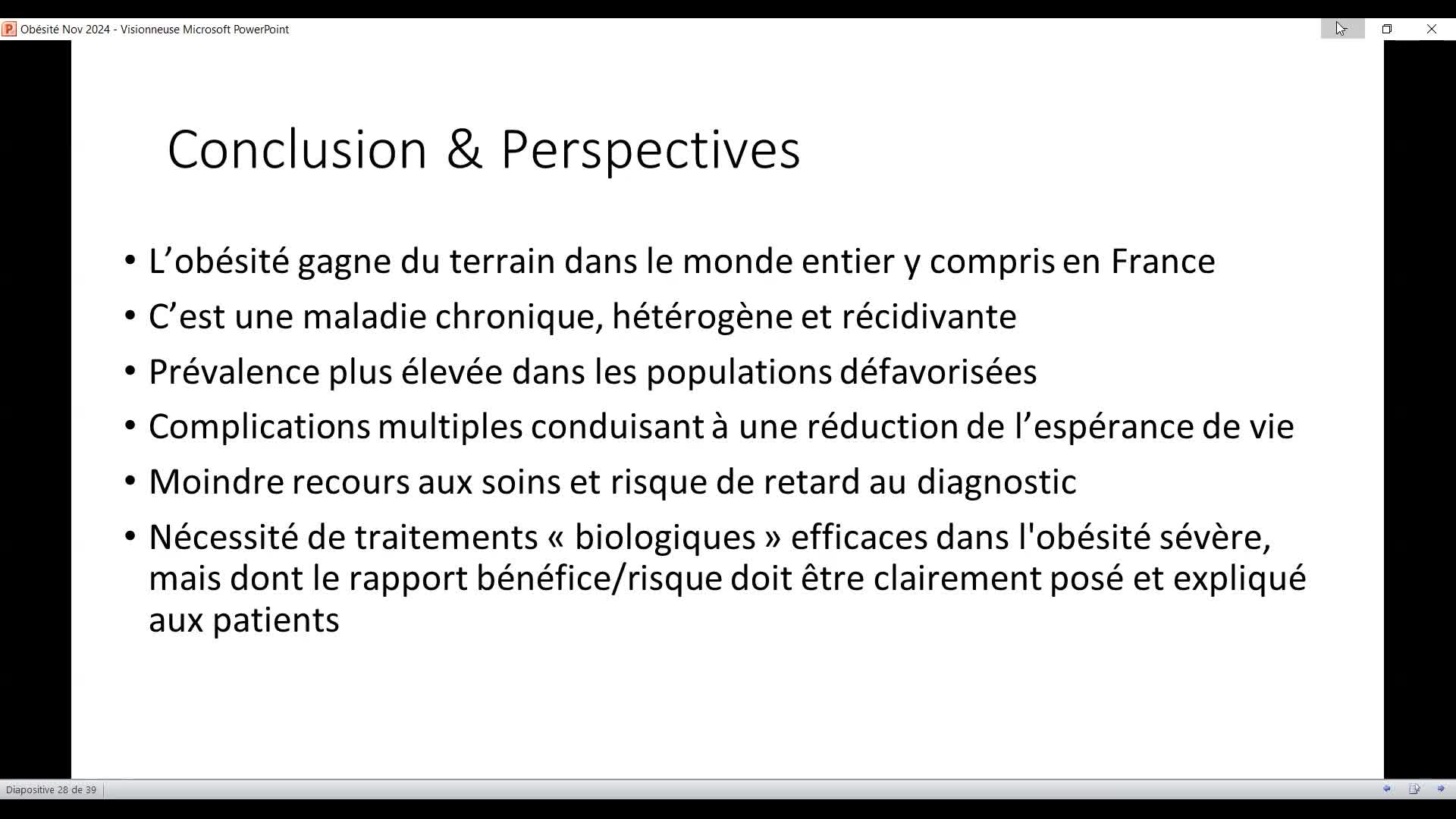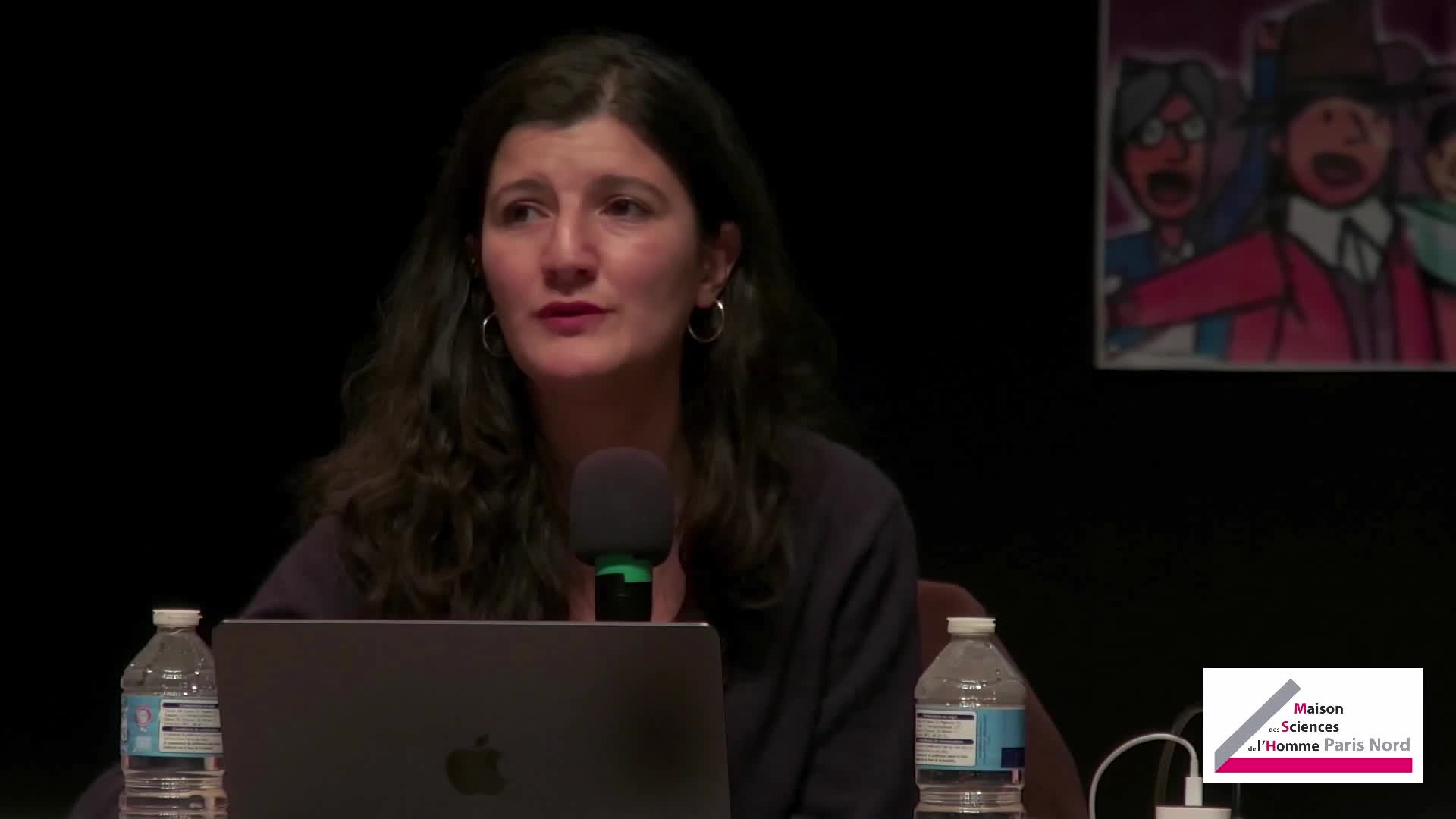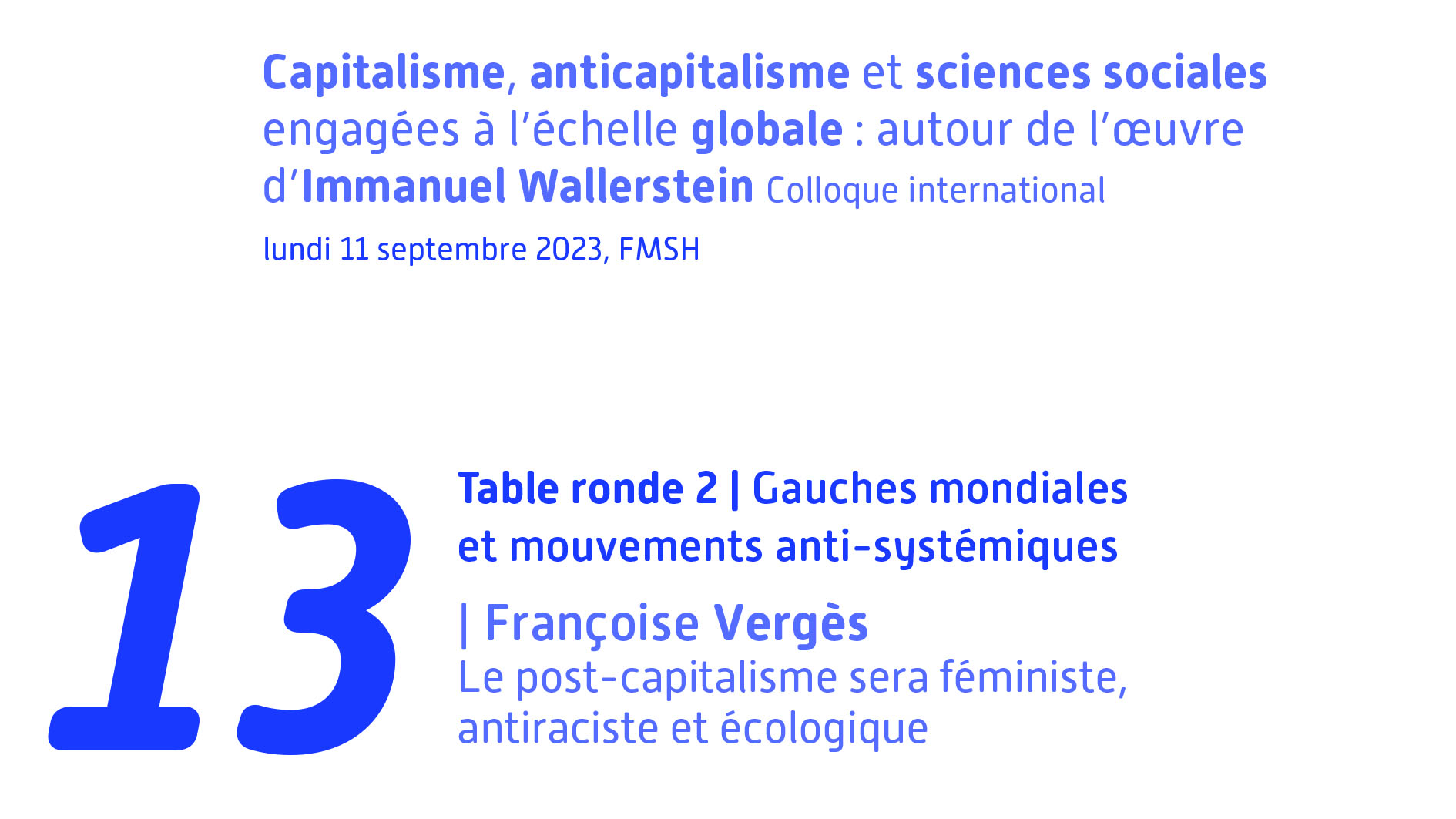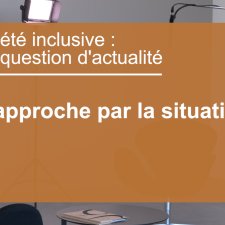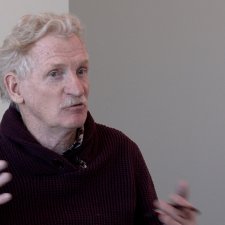Notice
The (un)deserving migrant? Questionner les pratiques frontalières non conventionnelles dans l'espace européen (Podcast en anglais)
- document 1 document 2 document 3
- niveau 1 niveau 2 niveau 3
Descriptif
Dans le contexte de la montée du sentiment anti-immigration à travers l’UE, une meilleure compréhension des pratiques "faisant frontière" à travers la société, au-delà de l'attention portée aux espaces classiques du contrôle migratoire, est nécessaire. Pourtant, ces sujets restent insuffisamment traités. Les acteurs sociaux dans les domaines de la santé, de la politique sociale, de l'éducation ou encore de l'intégration au marché du travail se voient impliqués dans le contrôle des immigrés à leur arrivée dans leur pays d’accueil. A partir de leurs représentations quant à la légitimité des migrants s'installant en dehors de leur pays d'origine, ils peuvent permettre, ou non, à certains groupes de migrants de participer de manière plus ou moins significative dans leur société d'accueil.
Cette conférence explore le continuum de frontières internes dans le contexte européen. Les conférenciers discuteront des processus d’inclusion et d'exclusion auxquels les migrants sont soumis à l'intérieur des villes, des régions et des pays de l’UE. Il s'agit de rapprocher des analyses en termes de processus de frontiérisation et un examen critique de la figure du migrant (non)méritant. Les sessions thématiques ont pour but de donner un aperçu comparatif des pratiques de "guichet" dans différents secteurs de politiques sociales, au-delà des approches classiques de la gouvernance de la migration en tant que contrôle de l'entrée et de la résidence. Les contributions se concentreront sur les pratiques "faisant frontière", de manière latente et manifeste, dans les domaines de l’éducation, la santé, la sécurité sociale et la politique du marché du travail. Ce projet de recherche permet ainsi de penser l'économie morale qui définit l'appartenance aux sociétés européennes.
L’organisation de cette conférence est soutenue par le Collège d’études mondiale, Fondation Maison des sciences de l’homme dans le cadre du projet de recherche “The (un)deserving migrant? Interrogating non conventional bordering practices in the European space”. Le programme a été créé à la suite d’un appel à contributions qui a déclenché un grand intérêt à travers les disciplines, ce qui témoigne de l'actualité des questions de recherche soulevées.
Ceci est un podacst en anglais, réalisé par FMSH-Audiovisuel à l'occasion du workshop organisé par Nora Ratzmann, London School of Economics et Nina Sahraoui, European University Institute, Collège d'études mondiales, FMSH.
avec
- Tobias Eule, University of Bern
- Lieneke Slingenberg, Vrije Universiteit Amsterdam
- Paolo Novak, SOAS, University of London
- Nora Ratzmann, London School of EconomicsCaroline Schultz, University of Bamberg
- Ellen Parsland, Lund university
- Jérémy Geeraert, Centre Marc Bloch (Berlin) and the Institute for interdisciplinary research (University Paris 13)
- Nina Sahraoui, European University Institute, Collège d'études mondiales, FMSH
- Harriet Gray, University of Liverpool
- Stefanie Schröder, Bochum University of Applied Sciences
- Jana Berg, German Center for Higher Education Research and Science Studies
Intervention / Responsable scientifique
Thème
Documentation
TRANSCRIPTION
You're listening to a podcast produced by the Fondation Maison des Sciences de l'Homme in Paris. Hello, my name is Emmanuelle Corne. I worked at La Fondation Maison des Sciences de l'Homme in Paris, trying to tell you stories of researchers, of subjects of researchers and how research can reach society and vice versa. One day I saw a program coming up. It was called The (Un)Deserving Migrant; "un" being in two brackets so we could read The Deserving Migrant and The Undeserving Migrant. The subtitle is Interrogating Nonconventional Bordering Practices in the European Space. Two researchers, Nina Sahraoui and Nora Ratzmann, had organised this international workshop. I must say I was very intrigued by this title, actually by the word deserving. So I went to that workshop, listened to all of them and asked some questions. Then I had a little interview with Nora and Nina, and this is the result of what they had to say during that day. <br>Hello, this is Nina and Norah, we are both social scientists and we want to present to you our project we've been working on for the last two years. Nina and I, we met for the first time in spring 2018, and personally, I came to Paris for my PhD research, which was part of a mobility bursary scheme between FMSH and the German Social Science Research Centre in Berlin. By training, I'm a political scientist, and I researched why some groups of EU citizens who are legally entitled to social assistance in Germany do not get access to benefits in practice. In other words, the informal barriers to substantiating a claim.
As for me, I came as a visiting researcher to the college of Etudes Mondial at the FMSH when I was a postdoctoral researcher at the EUI in (inaudible) Project EU Border Care. My stay at the college aimed at developing research collaborations in France following my fieldwork in the French overseas department. And on this occasion, I met Nora and we started exchanging around our respective research.
Nina and I discovered our common interest in research of real-world problems relating to social inequality, self-help processes of inclusion into, and exclusion from different areas of social service provision work in different countries settings for those coming from outside, so who are migrants and not national citizens of the respective country they live in. Then Nina and I met again at the European University Institute, which is in Florence, Italy, where Nina was doing her (poster) and I was doing another research stem to write up my thesis. There, in the hills of Italy, is where the idea of this research initiative emerged.
So we've prepared a research proposal, and thanks to the funding provided by FMSH, we organised an international workshop around the idea of what constitutes a deserving migrant and the ways in which some are deemed undeserving.
So before we went ahead, I asked Nora Ratzmann, who is from the London School of Economics, if she could tell us more about EU social citizenship.
The EU social citizenship is sort of a legal bundle of rights, which comes with citizenship in EU member states. So if you're a German or French, you also automatically have EU social citizenship rights that can have all sorts of different forms. That includes that you can just cross the border freely so that you can work in a different European country without a visa. But it also includes access to certain social services and benefits. The idea of the commission when they created this whole concept was effectively to see EU citizens as sort of co-national so that I have the same rights, as a German when I'm living in France, as the French person would be. But in practice, the concept doesn't always work because when you start dealing with local administrations, then often you're just seen as a foreigner. So kind of you encounter a lot of barriers in practice as any other migrant. So you could question the concept or this idea of EU social citizenship is not just a symbolic one, or whether it has some real impact, like in some ways it does because we have Schengen, we can move across borders, but when we try to settle, it doesn't always help because we encounter the same difficulties as other migrants locally.
As for Nina Sahraoui, we asked her more about moral deservingness.
Moral deservingness captures the idea that in the formation of judgments of deservingness, moral ideas intervene in a significant manner. So, for example, in our workshop, we explored how street-level bureaucrats assess, in their everyday work, migrants deservingness to access different social services in health care, education, housing and labour market programs, for example. We found that the notion of deservingness matters because social agents come effectively to determine individual migrants or migrant groups' access to specific social services. So the notion of deservingness is an analytical tool to reveal how people's normative ideas operate, how they implement ideas around who should and who should not access certain services.
But even if deservingness can appear like a complicated concept, she adds:
In essence, it interrogates people's ideas of what they consider fair, of how welfare resources, which are limited, should be distributed and who should get what under what conditions, or differently put: which groups, which individuals, are considered worthy of attention, investment and care, and who, on the contrary, is deemed as less deserving of support.
So now that we know more about the concept of deservingness, let's ask Tobias Oil about the European migration regime and its practices
Migration regime is a perspective that a lot of scholars take to take into account the complexity of migration control. There are a lot of different rules and a lot of different organisations, agencies and agents that are involved in controlling migration. As a result, there's no central logic but a disjunct picture of different types of agencies and controlling efforts that can counteract each other. And that is relevant because if someone is seen deserving in one agency or under one rule, that doesn't mean they're seen as deserving or belonging in another. So for an individual, this has stark consequences because they're kind of torn between somehow belonging and somehow not belonging. An example for this could be people who entered Europe in 2015 and were welcomed quite generously, but then now are facing deportations nevertheless.
This links to ideas about solidarity. Who should we care for in a given society? Should foreigners, as people from outside, so different groups of migrants, be included? And if so, how and when? We approach the question by looking at different areas of essential social services, namely health, education, housing, social assistance and labour market access, in a wide range of European countries, for instance, including France and Germany, of course, Greece, the UK, Switzerland and Italy.
Jana Berg and Stefanie Schroder on how to access higher education in Germany:
My name is Jana Berg. Together with my colleague, Stefanie Schroder, I have looked into concepts of deservingness in the context of refugees' access to study preparation and higher education in Germany. We view deservingness as a powerful social construction of gatekeepers involved in access procedures, such as study counsellors, matriculation staff, people organising preparatory courses, etc. These crucial actors show different understandings of who should get access to the mandatory study preparation courses, which applicants have to pass before they can enrol in a German university. The actors' perspectives on legitimate access criteria and refugees' special needs seem to influence their decision making within their professional routines and their attitude to use informal scopes of action. This should be critically analysed since this form of gatekeeping tends to informally stratify refugees' access chances to German universities.
We believe that the topic of solidarities is increasingly important not only in times of growing populism but also considering the context of our current pandemic and also financial austerity and increasing migration-related diversity. So who, for instance, should have access to national health services? Migrants who recently arrived? What happens to those migrants who have no access? We believe these are a lot of highly relevant policy questions, which emerge from the angle of looking at the deserving migrant.
Now that we know more about concepts, practices, solidarity, let's ask Caroline Schultz about toleration.
So a toleration status is, according to the legal definition, a temporary suspension of deportation. So it's basically not really a status, it's a non-status in the sense. So it is a category of migrants, very often asylum seekers whose asylum application has been finally rejected by the state and who then actually have to leave the country. But for some reason, their deportation cannot be enforced. They cannot return, for instance, they don't have any passports or other identity documents, so they remain in the country, although they don't really have a regular residence permit and they get this status, or non-status, of toleration. So they are there, but they are not really there in a sense.
We were also particularly interested in analyzing how those workers at the frontline of different social services, they are referred to as street level workers in the literature. So we were interested in how these workers can facilitate or hamper migrants access to social services. There is indeed often a focus on policy makers, who determine the general rules governing access, but actually how these rules are interpreted and implemented matters a lot as well. That's why it's important to explore these practices through qualitative methodologies and to observe what happens on the ground.
And to understand how it works on the ground, we asked Ellen Parsland to tell us more about methodology.
So activation is a way for researchers to try to grasp the more individualizing elements that are happening within social policy and labour market policy, and more recently, migration and integration policy, where you can see that in policy and in organization, a more bigger interest is put in the individual responsibilities rather than the individual need for measures or interventions within the welfare state. In Sweden, where I'm from, it's fairly regular that if you are applying for financial aid from the social services, that you often have to show what you're doing, you have to do something to get something, so to speak. And if you're not, for instance, participating in labour market practices, you won't be provided with financial aid or the help or support that you need. You have to show your deservingness.
The researchers figured out that policy makers and other decision-makers put hurdles in the way of migrants accessing essential services and practice. For instance, they're asking additional paperwork by being more or less flexible regarding certain roles.
Let's get now to arbitrary practices with Jérémy Geeraert.
An arbitrary practice as it refers to the liberty of choice of state employees concerning the decisions they make about the people who come to them. This liberty of choice or this room for manoeuvre imply that two different people in the same situation can face different answers to their demand and depending on criteria that are not given at the first place. For example, in social services, the employees have to evaluate the social situation of the person seeking social benefits. In this evaluation, some moral concerns can play a role, and some people can be favoured, while others not. If the employee feels the compassion for a patient, it would be more likely that this person gets help. On the other hand, if the employee feels that the applicant is lazy or wants to take advantage of social benefit, it will be more likely that it will be denied to this person.
Harriet Gray has a great example about migrants and higher education.
To decide the rate of fees payable for higher education in England, students are divided into two categories. Home and EU on the one hand and international students on the other. Home students have access to loans from the state to cover the cost of their tuition fees and an extra amount towards their cost of living. International students, typically imagined as the offspring of privately wealthy families who have come to the UK for the sole purpose of study, are ineligible for these student loans and for the majority of university bursaries, which are reserved for home students. Recognized refugees are classified as home students, but forced migrants with other statuses, including asylum seekers waiting for their applications to be processed, are classified as international students. This makes access to higher education financially impossible for most.
In a lot of European countries, we could also observe that access was made dependent on clients' behaviour or how those frontline workers interpreted their behaviour. As a result, those who are in direct contact with migrants, the so-called street-level workers, tended to play a role of gatekeepers, allowing some migrants into the system and blocking access for others.
Lineke Slingenberg is telling us on relations between deservingness and domination.
Yes, so sometimes if you're considered deserving of some governmental benefits at the same time, this could mean that if you accept these benefits, you subject yourself to the disciplinary power or dominating power of the state. For example, if you are considered deserving of some shelter and then you start living in the shelter and you are subjected to a curfew or to a daily reporting obligation, or you can't leave the territory in which the shelter is located. So there is this tension between being deserving and at the same time, being subjected to disciplinary power, migration control powers.
So finally, I asked Paolo Novak if there was such a thing as a good migrant.
Well, look, I don't think there is such thing as a good migrant or, for that matter, a bad migrant. I think these are judgments that have been created and are constantly being created as a way of separating one group of people from the others. I find these judgments very problematic, we are not sure exactly where they come from, who formulates those judgments. What is clear is that over the last two decades, three decades, perhaps even more, the idea that migrants have to contribute, have to offer, that they have to be docile, that they have not to unionize, have been progressively taking away political space from all the different people that, for different reasons, have had to leave their own country. We've been conducting research in central Italy on the asylum seekers reception system, and it was clear to me over the last three years that I've been spending doing field research over there that effectively the idea of what is a good migrant, which in that context is simply somebody that complies with the rule that is docile, that does not complain about anything, that offers help and volunteers that is happy to be exploited and marginalized within society actually can have better chances of staying in Italy. All the others, anyone complaining, anyone raising some doubts, anyone attempting to claim their own rights or their own demands, well, is considered as somebody problematic, somebody that does not deserve to be here. We are giving you so much already, the argument goes that you should be happy as it is.
We also want to highlight that ideas about deservingness and undeservingness also become a strategic tool in rationing access to limited social services, such as healthcare services, housing in a context of budgetary pressures and austerity politics. So this question's already triggered major political tensions previously in context of increasingly limited resources and we can expect these tensions to deepen in the light of the economic crisis caused by the pandemic. Or a more positive hypothesis would suggest that more inclusive policies might follow from the interdependencies that the current sanitary crisis has foregrounded. But what we know for sure is that who is deserving of what services will certainly be vividly debated in post-COVID times as well.
The Fondation Maison des sciences de l'homme deeply thanks Nina Sahraoui and Nora Ratzman for their collaboration to that podcast. The music is from Irina Giménez. This podcast is produced by the media department of the Fondation Maison des Sciences de l'Homme.
Avec les mêmes intervenants et intervenantes
-
Politiques migratoires et politique de la migration
BalibarÉtienneCalameClaudeFabartAlainMassiahGustaveCosnayMarieSahraouiNinaNuseloviciAlexisTable ronde de la Chaire "Exil et migrations" Les États et gouvernements européens mettent en place des mesures pour gérer la supposée crise migratoire. Des réflexes nationalistes et des intérêts
Sur le même thème
-
La laïcité vue par des étudiantes et étudiants internationaux de l'EHESS
InoueSubaruSürat AksanMüberraVillaniDavidHermon-BelotRitaPortierPhilippeEn France, le principe de laïcité, bien que globalement perçu positivement, demeure source de débats en raison d’interprétations divergentes.
-
Discriminations à l’ère des plateformes numériques. Le cas de la grossophobie
BourdeloieHélèneLarochelleDimitra LaurenceFerréNathalieCaretteClaireBellichaAliceColloque organisé par Hélène Bourdeloie (maîtresse de conférences à l’Université Paris Nord, chercheuse au LabSIC, en délégation au CIS-CNRS en 2024/25) et Dimitra Laurence Larochelle (maîtresse de
-
Colloque international « (In)justice reproductive : Les droits reproductifs au prisme des rapports …
CarayonLisaSantos RodriguezVictorDans cette vidéo, Lisa Carayon anime une table ronde portant sur les enjeux de justice reproductive et de travail.
-
La discrimination ethno-raciale dans la corporation des Avocat.es
ZribiYasmineLa recherche porte sur la manière dont les rapports sociaux ethno-raciaux participent à la division sociale d’une corporation professionnelle, celle des avocats. Si la formation et la réussite à l
-
Le handicap au pouvoir - Avec Cyril Desjeux
BaudotPierre-YvesDesjeuxCyrilDans le cadre des émissions en direct "Autonomie : l'actu de la recherche", organisées par le Programme prioritaire de recherche (PPR) Autonomie. Lire le compte-rendu écrit : https://ppr-autonomie
-
Les Causeries de l'Égalité - L'égalité et le genre #7 - Femmes et discriminations
DucretMarie PatriciaDechepy-TellierJohanLes Causeries de l'Égalité - L'égalité et le genre #7 - Femmes et discriminations
-
Les mots de trop – Guide d’auto-défense pour étudiant·es en art
AlvèsAnaïsBaierlEstelleVelaSophieQue faire de nos colères face aux discriminations subies lorsque l’on est étudiant·es en art, alors même que l’on imaginait ce milieu plus ouvert qu’un autre, peut-être plus safe ?
-
Handicaps et travail #2 - Discriminations en raison du handicap dans l'emploi
DucretMarie PatriciaLefevreDidierDidier Lefevre - Causeries Handicaps - Handicaps et travail #2 - Discriminations en raison du handicap dans l'emploi
-
Table ronde 2/ Le post-capitalisme sera féministe, antiraciste et écologique
VergèsFrançoiseDans le cadre de ses 60 ans, la Fondation Maison des sciences de l'homme organise le colloque international "Capitalisme, anticapitalisme et sciences sociales engagées à l'échelle globale : autour de
-
Société inclusive : une question d'actualité - L’approche par la situation
WalkerAlanMeistermannChristianHôteJean-MichelFougeyrollasPatrickComment la primauté à l’interaction entre l’environnement et la personne participe à la refondation de l’action publique et des pratiques professionnelles qui construisent la société inclusive ?
-
Entretien avec Christian Meistermann sur la Société inclusive
MeistermannChristianEntretien avec Christian Meistermann, représentant régional Grand-Est de APF France handicap
-
Le Brésil, vu par Rebecca Lemos Igreja
Lemos IgrejaRebeccaLa Fondation Maison des sciences de l'homme soutient les milieux intellectuels évoluant dans des pays marqués par divers obstacles à la liberté académique. Pour ce faire elle accompagne des chercheurs




